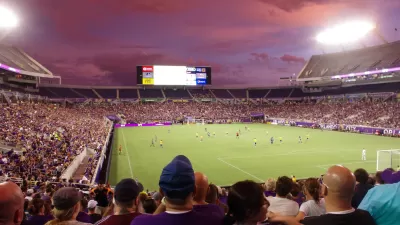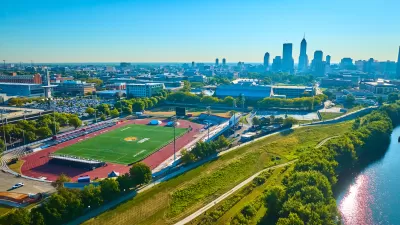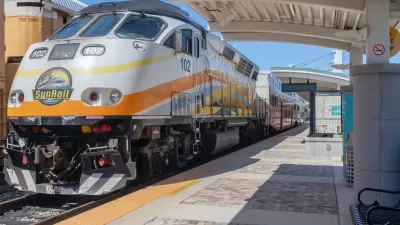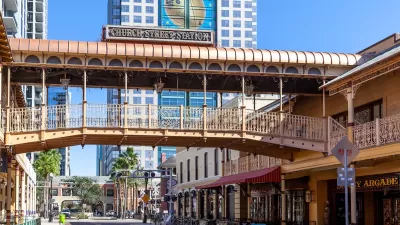The owner of the MLS's Orlando City soccer team has found an innovative way to finance his team's new $156 million stadium, funded by foreign buyers of American green cards.

Orlando City S.C. of Major League Soccer has taken a new and somewhat controversial approach to funding its new stadium. Ken Belson reports in the New York Times that Orlando City owner Flávio Augusto da Silva is using a Federal program, known as EB-5, that allows developers to raise capital by selling green cards to foreign buyers. As Belson notes, the program was "intended to help pay for infrastructure projects in rural areas and poor urban neighborhoods." However, during the last recession the program was adopted by private developers to fund the construction of hotels and condos.
The Orlando project features a 25,000-seat stadium, scheduled to open for the 2017 seasons of both Orlando City S.C. and the Orlando Pride, the women’s team that Mr. da Silva owns with his partner Phil Rawlins. Originally, the city and county agreed to subsidize the project. But when state lawmakers balked at approving a sales tax rebate, Mr. da Silva turned to the EB-5 program, something Orlando’s mayor, Buddy Dyer, cheered.
The soccer club has raised $15 million to date from 30 investors who have purchased the green card for $500,000 each. In addition to a green card, which allows the investor and their family to live and work in the United States, the investor also receives two club seats in the stadium for ten years.
FULL STORY: Price for a Green Card: $500,000 Stadium Stake

Study: Maui’s Plan to Convert Vacation Rentals to Long-Term Housing Could Cause Nearly $1 Billion Economic Loss
The plan would reduce visitor accommodation by 25,% resulting in 1,900 jobs lost.

North Texas Transit Leaders Tout Benefits of TOD for Growing Region
At a summit focused on transit-oriented development, policymakers discussed how North Texas’ expanded light rail system can serve as a tool for economic growth.

Why Should We Subsidize Public Transportation?
Many public transit agencies face financial stress due to rising costs, declining fare revenue, and declining subsidies. Transit advocates must provide a strong business case for increasing public transit funding.

Alabama: Trump Terminates Settlements for Black Communities Harmed By Raw Sewage
Trump deemed the landmark civil rights agreement “illegal DEI and environmental justice policy.”

Dear Tesla Driver: “It’s not You, It’s Him.”
Amidst a booming bumper sticker industry, one writer offers solace to those asking, “Does this car make me look fascist?”

A Visual Celebration of Manhattan’s Chinatown Elder Community, Through Food
Lanterns, cafeteria trays, and community connection take center stage in this stunning photo essay.
Urban Design for Planners 1: Software Tools
This six-course series explores essential urban design concepts using open source software and equips planners with the tools they need to participate fully in the urban design process.
Planning for Universal Design
Learn the tools for implementing Universal Design in planning regulations.
City of Santa Clarita
Ascent Environmental
Institute for Housing and Urban Development Studies (IHS)
City of Grandview
Harvard GSD Executive Education
Toledo-Lucas County Plan Commissions
Salt Lake City
NYU Wagner Graduate School of Public Service





























